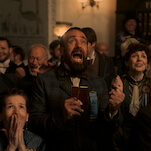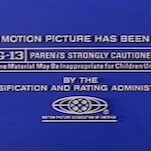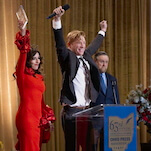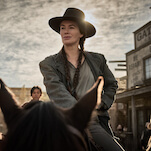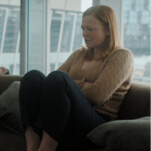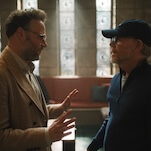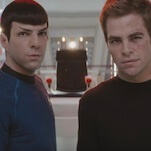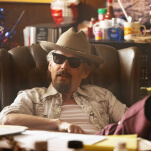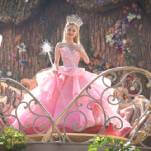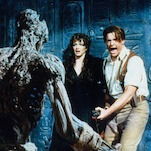Aside from the inevitable sloppiness that comes from rushing to complete a cut before Election Day, the countless recent activist documentaries have a brief shelf life. Fahrenheit 9/11 may be the movie of the moment, but what will it look like in two years—or two months, for that matter—when all its success and accolades (the Palme D'Or?!) speak more to the times than its legitimacy as a lasting historical or artistic document? As an indictment of über-consultant Karl Rove, Bush's Brain was outdated before it even hit theaters, because it missed out on the Swift Boat Veterans For Truth ads, arguably Rove's most diabolical masterstroke to date. Now George Butler's Going Upriver: The Long War Of John Kerry comes at the end of the news cycle, when debates over Kerry's Vietnam service and George W. Bush's National Guard non-service have already been played out in talk shows and on editorial pages. Right off the bat, it's questionable whether the film has any relevancy today, let alone for the future.
Loosely based on Douglas Brinkley's Kerry biography Tour Of Duty, Going Upriver contains elements of pure hagiography, with gleaming soundbites from fellow veterans like former senators Max Cleland and Bob Kerrey, several of Kerry's Mekong Delta shipmates, and other political dignitaries and activists. Yet Butler (Pumping Iron), a longtime Kerry advocate who began documenting him 35 years ago, isn't strictly interested in doing his part for the campaign. Through Kerry's experience as a naval lieutenant and his subsequent involvement in Vietnam Veterans Against the War (VVAW), Butler tells the larger story of the widespread angst and disillusionment of many veterans who felt their service was in vain. As their most prominent and eloquent spokesman, Kerry risked his political career by decrying the war in front of the Senate Foreign Relations Committee; this testimony, more than any specious complaints over his military record, continues to rouse his ideological enemies.
When it steers away from campaign-ad testimonials and considers Kerry's moral awakening in Vietnam and beyond, Going Upriver features some tremendously powerful scenes. Critics complain that Kerry only spent four months on a swift boat, but he saw enough action for several lifetimes: Patrolling up the Mekong Delta, where the boat's roaring engines alerted enemies from miles away, he and his shipmates regularly engaged in combat, participating in "free fire" zones that allowed for indiscriminate killing and destruction. Upon his return, Kerry joined his VVAW brethren for a weeklong Washington D.C. protest, which culminated in his Senate appearance and a ceremony where veterans threw away their ribbons and medals. Save for a distracting Philip Glass score, which recycles bits from The Fog Of War, Butler lets the footage speak for itself, and it's impossible to be unprovoked by the veterans' painful gesture. If only the Kerry of 1971, who famously questioned the morality of engaging troops in an unjust war ("How do you ask a soldier to be the last person to die for a lie?"), could arouse his slumbering conscience today, he might inspire more people to vote for him.

